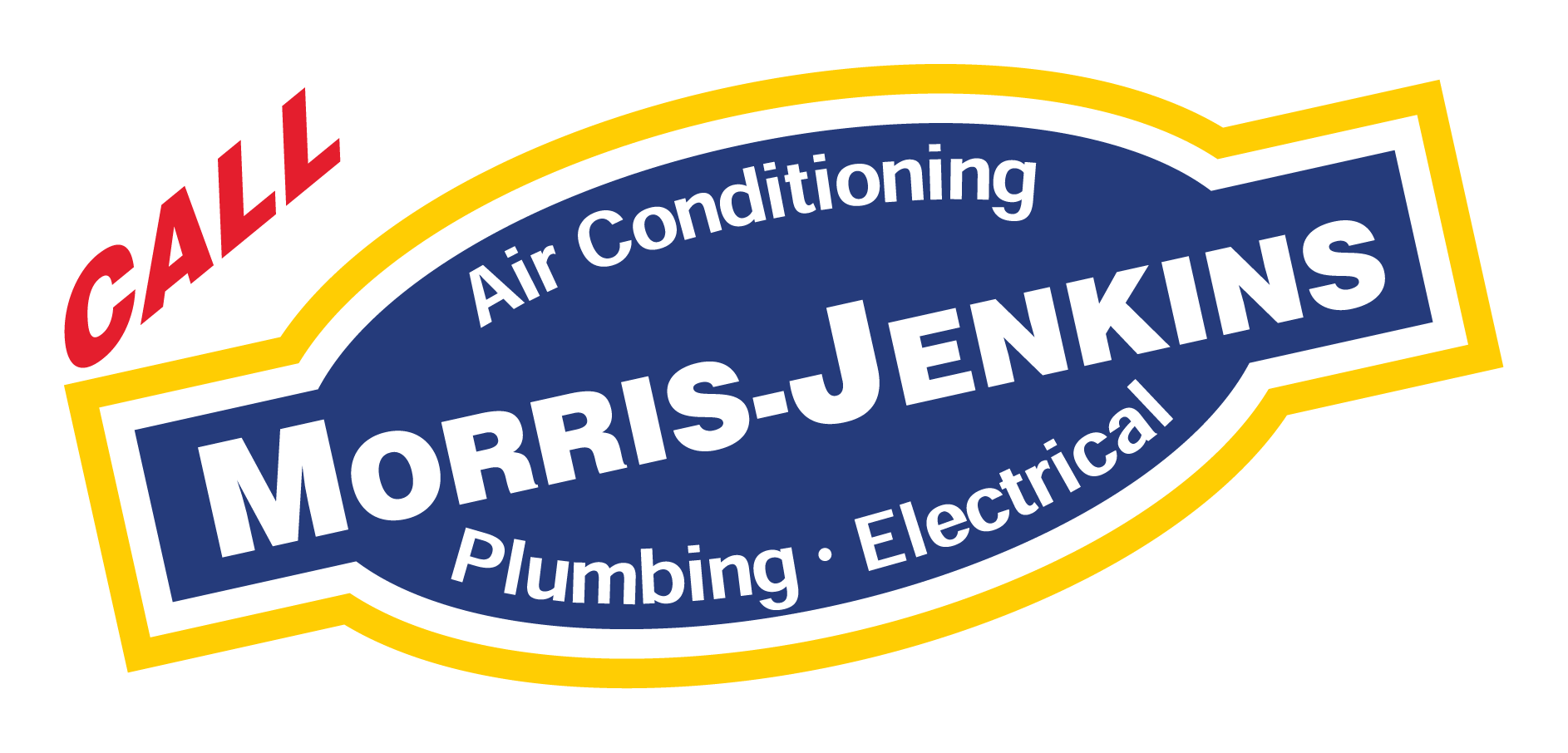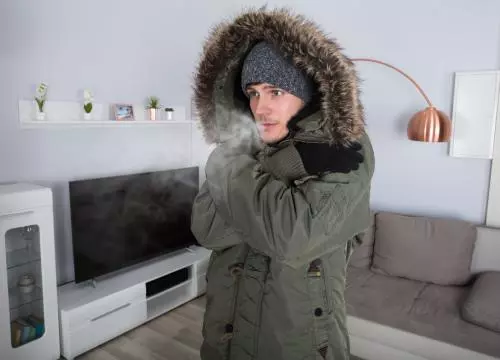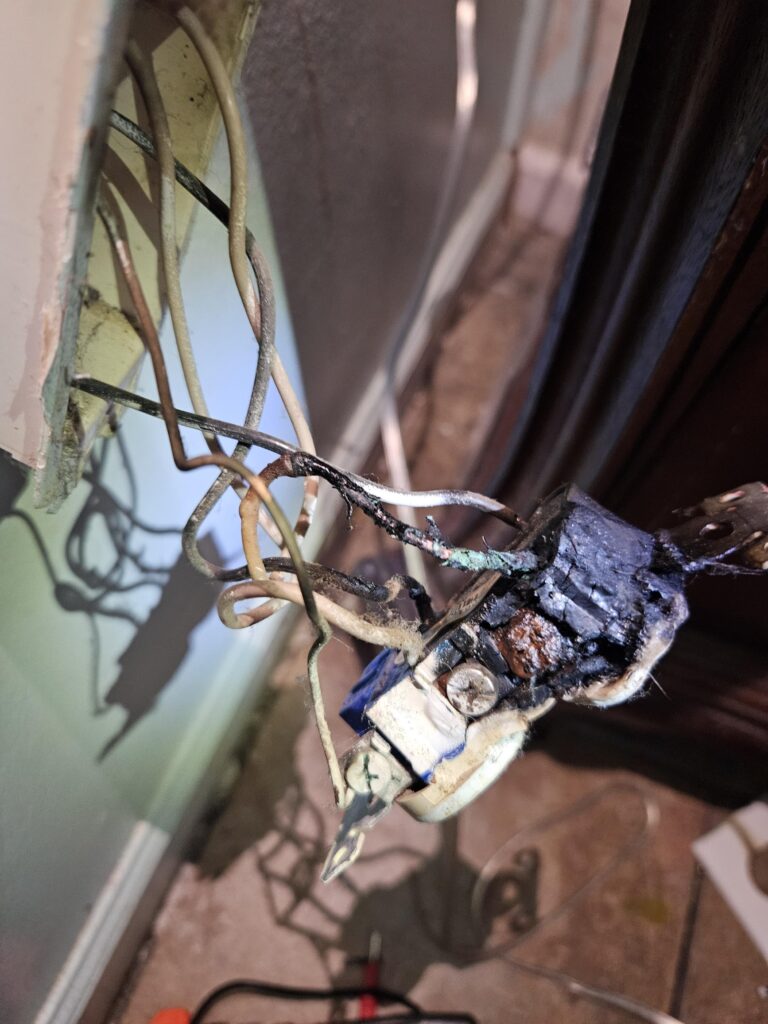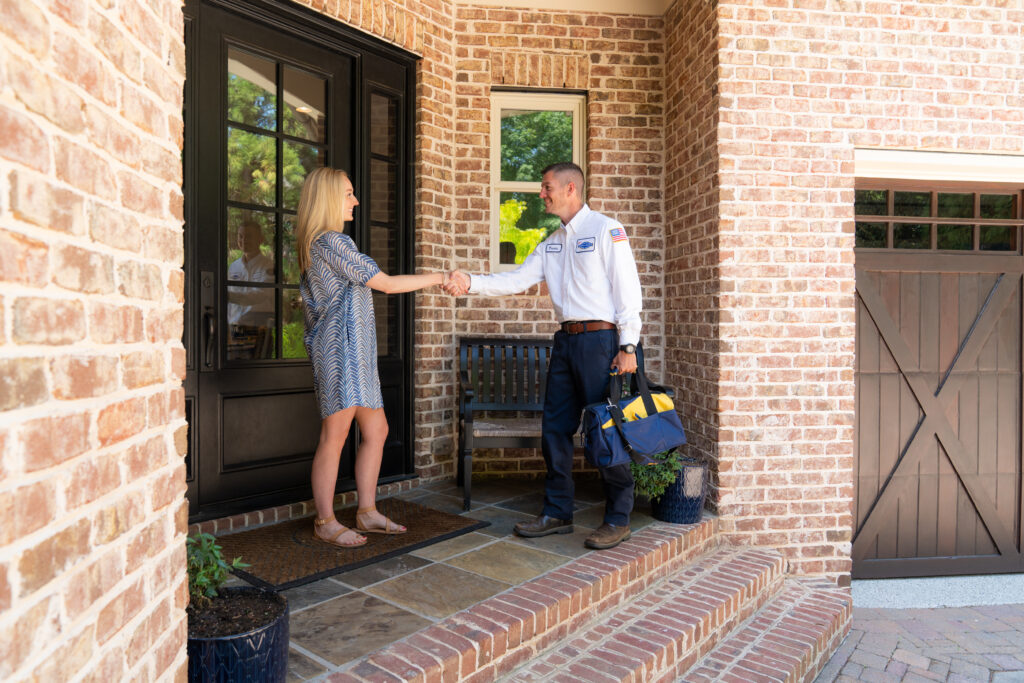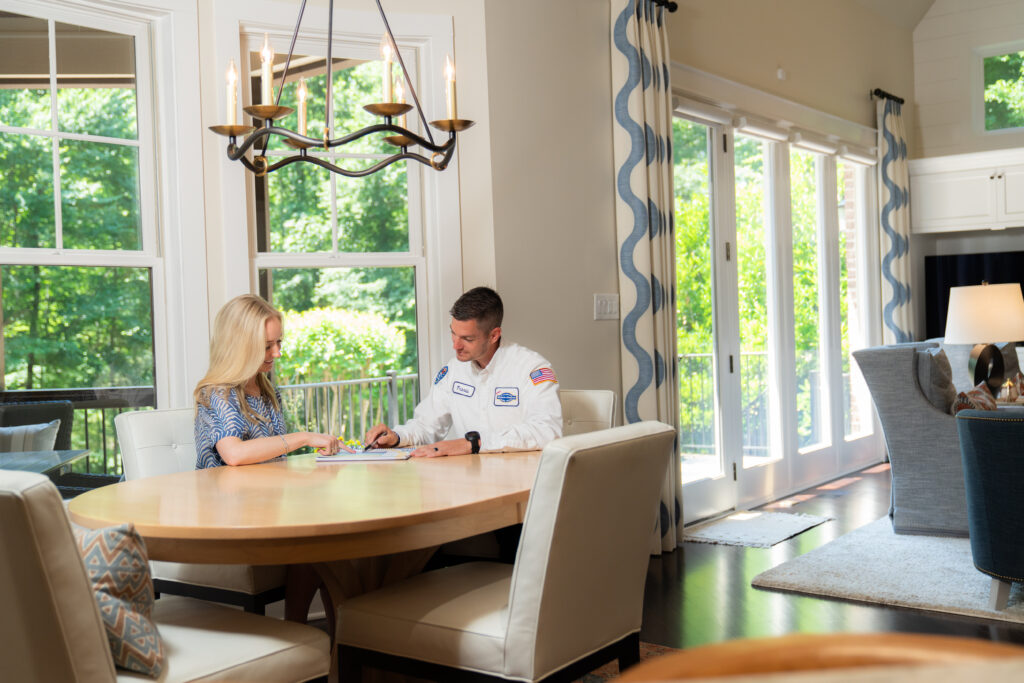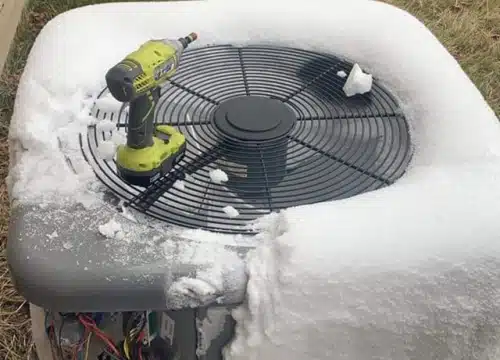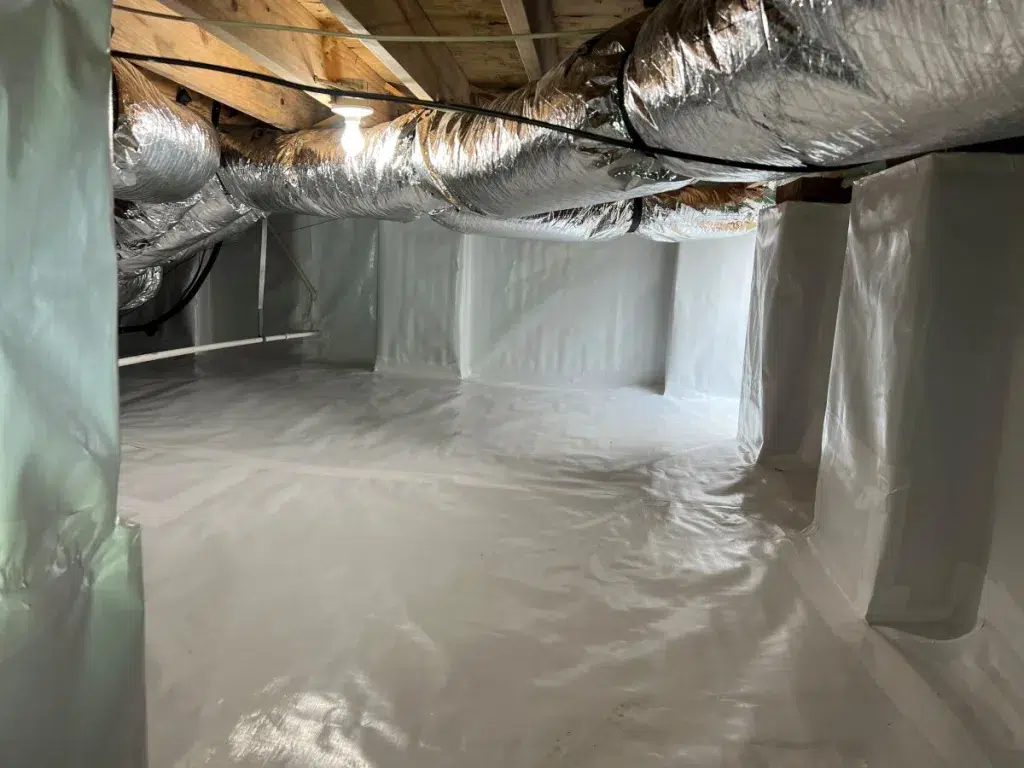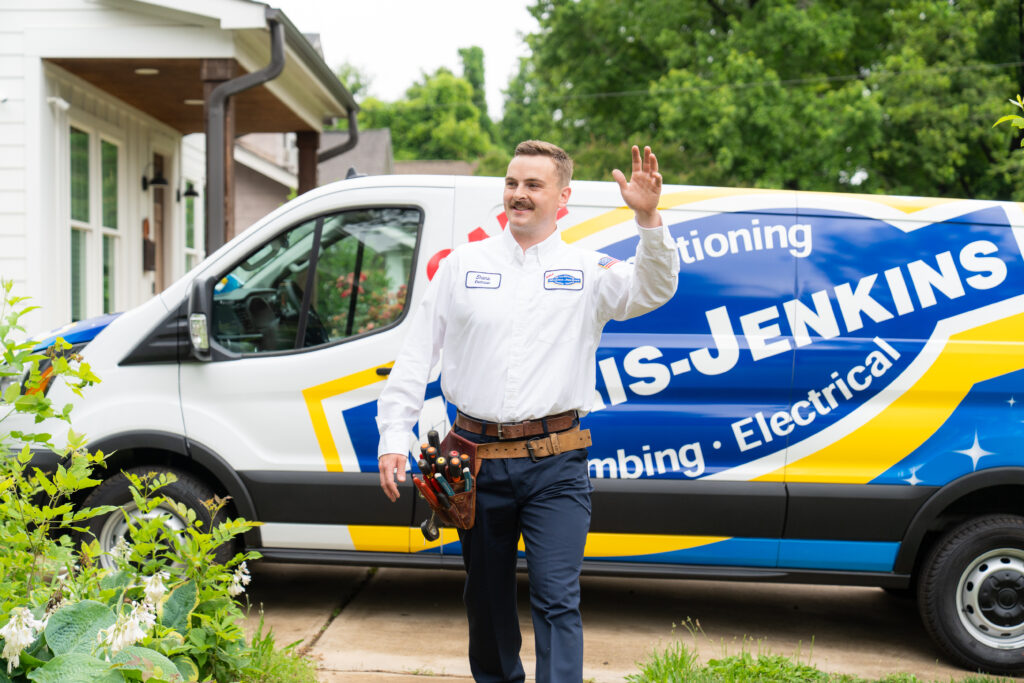Why Is My Furnace Blowing Cold Air?
Is cold air blowing out of your vents when the heat is on? Does your furnace turn on and off over and over, but even when your furnace turns on, there’s no heat?
Before you call Morris-Jenkins, there are a couple things you can check yourself first, if you wanna try to get to the bottom of things.
You can always call Morris-Jenkins! We’re here seven days a week til midnight and can get your furnace fixed fast. This common heating problem is something we see all the time—don’t panic! Let’s take a look at a few possible reasons.
DIY Furnace Troubleshooting
Can a Dirty Filter Cause Heat Not to Work?
It sounds too easy to be true, but if you have a clogged air filter, it won’t allow air to pass through it. According to one of our HVAC technicians, “Filters are designed to collect dust and debris that would otherwise damage your unit. Over time, all this dust can lead to a clogged air filter, which won’t allow enough air to pass through.
If your filter isn’t drawing in enough air, there’s less flow in your furnace.” Your furnace is a controlled fire burning inside your home. In furnaces, most heat exchangers, depending on brand and size, get up to 140-170 degrees Fahrenheit. Without the cooler air of your home flowing through it and keeping the temperature steady, it will continue to burn hotter and hotter, reaching a temperature of 180-200 degrees. Your furnace is equipped with several safety systems, like a flame sensor and a high limit switch, to shut the fire down when it begins to overheat.
When this happens, even when the fire is off, the blower will continue to blow air through your house, but there’s nothing heating it. That’s where the cold air is coming from! Have you ever burned your finger before? Did you blow on your finger afterward to cool it? Your blower works in a similar way, but the heat it blows off of your heat exchanger is what warms a room.
When it cools down, the blower will continue to blow for a while, even if it’s no longer warming your house. When the temperature gets back in a safe range, the fire will relight, and the problems will just continue until eventually your unit locks down and the fire no longer relights.
That’s why your furnace isn’t blowing hot air!
Basically, your clogged air filter isn’t allowing your furnace to cool down to maintain a safe temperature, so the safety sensors shut the fire off when it overheats. If this is the case, there’s good news! Your furnace is doing its job to keep your family safe!
The solution to this problem is easy—you’re overdue for a filter change!
Related: “7 bad smells that could come from your furnace”
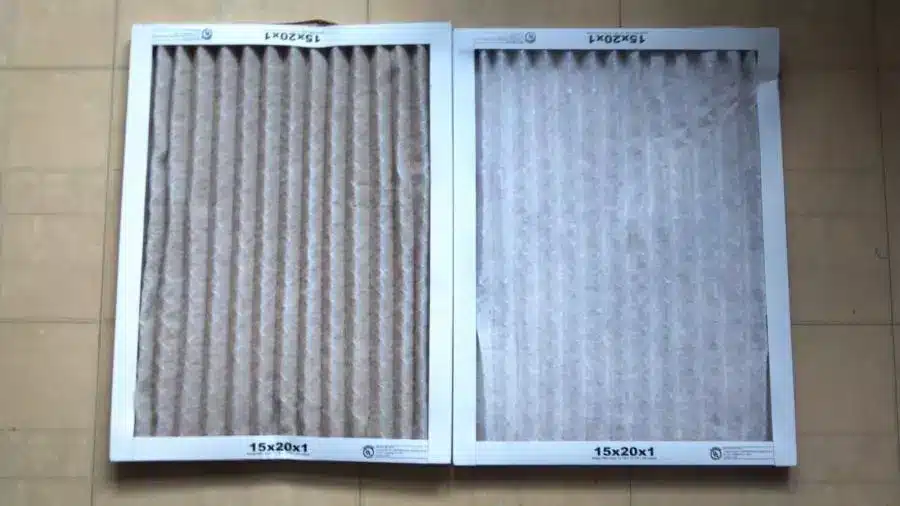
Furnace Blowing Cold Air After Filter Change
Not all filters are created equal. Have you ever looked at your filter? There’s a rating called a MERV (Minimum Efficiency Rating Value) assigned to every filter. Morris-Jenkins recommends filters with a MERV rating of 8. The MERV rating determines how compact the pleats are in the filter. A higher MERV rating means tighter pleats. Companies advertise high MERV ratings as having longer lives, but this is simply untrue.
Remember when we said a clogged air filter doesn’t allow enough air through? This will cause your furnace to overheat, and safety features like your flame sensor and high limit switch shut the process down. Just like a dirty filter, a higher MERV rating (such as MERV 13) can easily damage your furnace by not allowing air through because the pleats are too tight together.
To find out if your new filter is the problem, turn off your thermostat, change the filter, and turn it back on. If the new filter was the problem, you should be good to go!
But if that doesn’t work, or if you go to replace your filter and it looks clean, this is not what’s causing your furnace to blow cold air.
If that’s the case, we highly recommend learning about what else can cause your furnace to blow cold air. You don’t need to go through it alone, either! Contact Morris-Jenkins for Charlotte, NC area furnace services.
Recommended: “Filters 101”
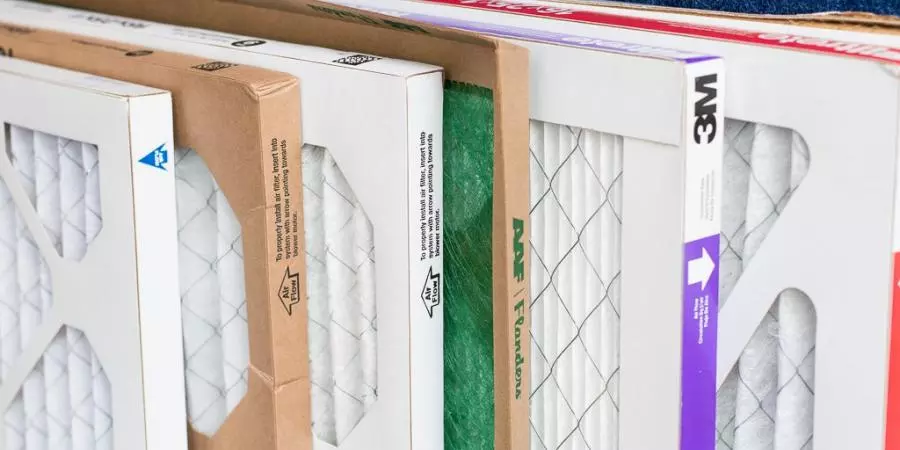
What Else Can Cause a Furnace to Blow Cold Air?
Got a furnace that’s acting more like an air conditioning system? That can be frustrating to say the least. While most of the calls we receive for a furnace blowing cold air revolve around the filter in some way, there are other reasons why your furnace isn’t blowing hot air like it should. Take a good look at your furnace and call us if you notice issues with:
Your Thermostat
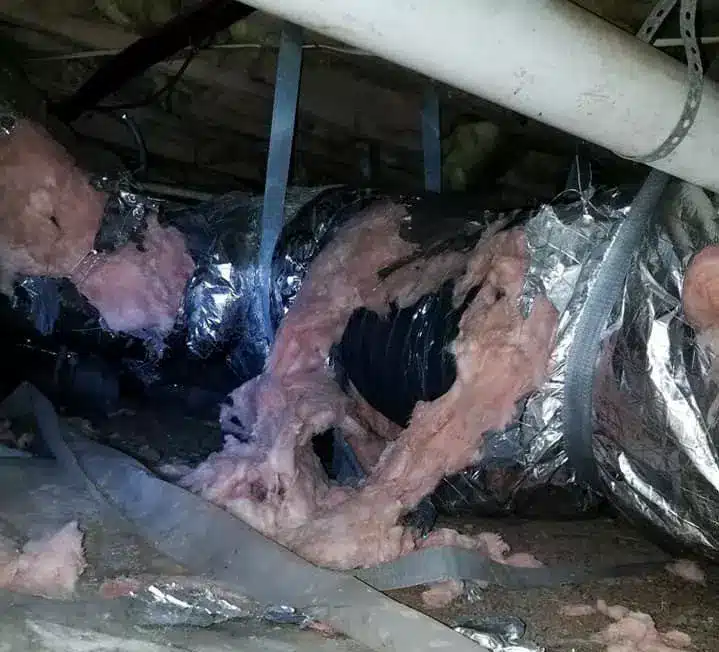
Do you program your thermostat?
Many people have programmable thermostats but never take advantage of the benefits; instead, they leave them set on auto. If you do program your thermostat, be sure that you didn’t leave it on “fan on” mode. Setting your thermostat to “fan on” is great when you have house guests or when you’re vacuuming (your unit will pull any floating debris that might be kicked up into the air while you clean). When you don’t need it anymore, it can make it seem like your furnace is broken.
When your thermostat is set to “fan on,” that fan is gonna keep blowing nonstop. Because of this, even when your furnace isn’t running, your fan will. It’ll make your home feel colder than it is.
Damaged or Undersized Ductwork
One thing many people overlook is the ductwork. Damaged ductwork with holes could be the reason why you’re feeling cold air blowing when your furnace is turned on. We’ve covered in the past how animals in your air ducts can live in and create holes that could potentially cause even bigger issues as well.
Ductwork is one of those things that needs to be sized right for the home it’s in. When it’s not, though, you’ll start to notice some problems pretty quickly.
Air ducts that are too small are gonna cause your system to work even harder to push air through. Any extra strain makes it harder to heat and cool your home, which could result in uneven temperatures from room to room, higher energy bills, and even early wear-and-tear on your HVAC system.
If you think your ductwork might be undersized, give your local HVAC technician a call. They’ll be able to inspect it in detail to find out if it’s sized right.
Clogged Condensate Line
Typically, heating and cooling systems only produce condensation when you run the air conditioner. If you have a high-efficiency furnace, however, it’ll create condensation even when running the heat. Often, the condensate line won’t be insulated. Part of your condensate line runs outside (to what’s called the “termination point”). If it gets cold enough outside, water will freeze at this termination point outside, and eventually it can freeze all the way up the line.
Even if the entire thing doesn’t freeze, the frozen blockage at the end can cause water to build up in your condensate line. This trips your flood safety device, shutting off your furnace.
Furnace Maintenance Can Help Prevent Future Heating Issues
We know how you feel; seems like those heating problems just snuck right up, huh? The good news, though, is that lots of furnace issues are completely preventable. With regular maintenance, your furnace can run more efficiently, last longer, and keep surprise breakdowns away.
Clean filters and well-tuned parts also mean better indoor air quality, so you’re not breathing in dust or allergens every time the heat kicks on. A little maintenance now can save you from bigger (and more expensive) problems later.
Call Morris-Jenkins for Heating Repairs in Charlotte
It’s always stressful when your furnace turns on but there’s no heat. Sometimes, the solution is as simple as changing out a clogged air filter. Other times, the fix isn’t so easy (as much as we hate to say it). If you’re still feeling the cold air blowing, call Morris-Jenkins for professional furnace repair service in Charlotte.
You wouldn’t take your car to just any mechanic. You’d wanna take it to someone who’s certified to work on your make of car.
Why let just anyone work on your unit?
Furnaces can be dangerous if not serviced right. Sometimes, it’s best to call in the professionals when you’re stumped. Morris-Jenkins has years of experience servicing and troubleshooting HVAC systems in the Charlotte area.
Give us a call or fill out a form today—we’ll make sure your family stays warm when you schedule furnace repairs with Morris-Jenkins!
